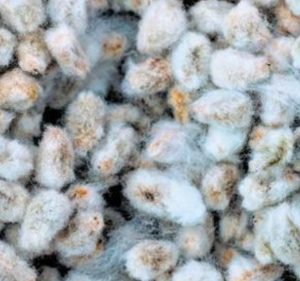Farmer participatory breeding programs safeguard organic cotton production in India
 A new study published by the International Society for Organic Farming Research (ISOFAR) in the Proceedings from the 2017 Organic World Congress examines the importance of participatory breeding programs to provide non-genetically modified (GM) seed to organic cotton producers in India. As adoption of GM Bt-cotton has become widespread across India, so has access to non-GM cotton seed for organic growers. In an attempt to address this shortage, organic cotton growers have joined participatory breeding programs to develop locally adapted cotton cultivars and reintroduce more robust cotton varieties that were commonly grown in the past. With effective training in breeding and selection methods as well as collaboration with the textile industry, farmers are able to reduce their dependence on seed companies while still ensuring that market demand is being met. “Participatory breeding is an important tool to get prepared for future challenges like climate change and, at the same time, strengthens the relationship along the value chain,” the study concludes.
A new study published by the International Society for Organic Farming Research (ISOFAR) in the Proceedings from the 2017 Organic World Congress examines the importance of participatory breeding programs to provide non-genetically modified (GM) seed to organic cotton producers in India. As adoption of GM Bt-cotton has become widespread across India, so has access to non-GM cotton seed for organic growers. In an attempt to address this shortage, organic cotton growers have joined participatory breeding programs to develop locally adapted cotton cultivars and reintroduce more robust cotton varieties that were commonly grown in the past. With effective training in breeding and selection methods as well as collaboration with the textile industry, farmers are able to reduce their dependence on seed companies while still ensuring that market demand is being met. “Participatory breeding is an important tool to get prepared for future challenges like climate change and, at the same time, strengthens the relationship along the value chain,” the study concludes.


